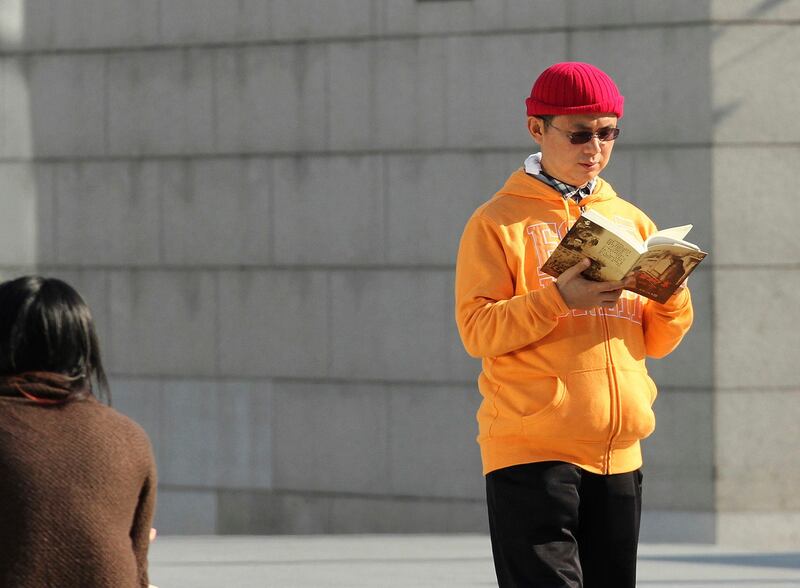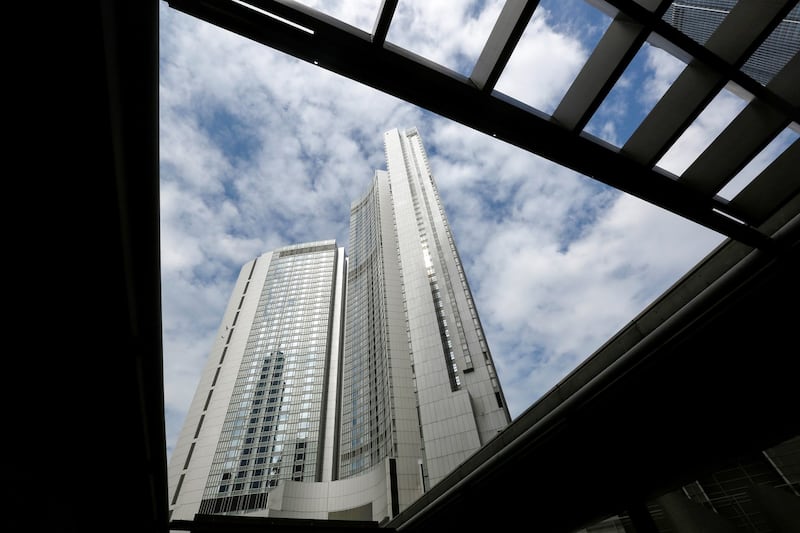
A court in Shanghai on Friday handed down a 13-year jail term to Xiao Jianhua, a Canadian national kidnapped from a Hong Kong hotel in 2017, after finding him guilty of billions' worth of financial offenses.
"For the crimes of illegally absorbing public funds, illegal use of funds, breach of trust and bribery, the Shanghai No. 1 Intermediate People's Court ... sentenced defendant Xiao Jianhua to 13 years' imprisonment and a find of 6.5 million yuan (U.S.$950,000)," the court said on its official Weibo account.
Xiao's company, Tomorrow Holdings, was also fined 55.02 billion yuan (U.S.$8.1 billion) on the same charges.
"Tomorrow Holdings and Xiao Jianhua have been flouting financial management law and regulations since 2004," the court statement said, accusing Xiao and Tomorrow Holdings of setting up a concealed network of corporate holdings to manipulate financial institutions.
"The criminal acts of Tomorrow Holdings and Xiao Jianhua have seriously damaged the order of the financial system, national financial security, and seriously violated the integrity of government employees," the court said.
Xiao, who has links to the family of ruling Chinese Communist Party (CCP) leader Xi Jinping, was abducted from his luxury apartment in the Four Seasons Hotel in Hong Kong by Chinese public security agents and taken to mainland China.
The Chinese-born Wang was tried behind closed doors on July 5 as a Chinese citizen, and the Canadian government said its diplomats were prevented from attending or visiting him in detention to offer consular assistance.
"China does not recognize Chinese citizens with dual nationality. Xiao Jianhua has Chinese nationality," foreign ministry spokesman Wang Wenbin told a regular news briefing in Beijing on Friday. “He does not enjoy the right to consular protection of other countries.”
The court statement said Xiao had "turned himself in, pleaded guilty and accepted his punishment," adding that he had also cooperated to help the authorities to recover stolen assets and pay damages.
The sentencing hearing was attended by deputies to China's rubber-stamp parliament, the National People's Congress, members of the Chinese People's Political Consultative Conference and "representatives of the masses," the court statement said.

'Lenient' sentence
Xiao Jianhua holds the right of abode in Hong Kong and passports for Canada, Antigua and Barbuda.
In July 2020, the China Banking and Insurance Regulatory Commission said it was targeting 38 major shareholders of banks including Baoshang Bank, which was taken over by regulators last year, and banks affiliated with Anbang Insurance, which was also taken over by the regulator a year earlier.
"There are still a few banks and insurance companies failing to abide by the regulations and which took part in related-party transactions, so as to make profit in improper ways," the commission said in a statement on its website.
"In some cases, assets under banks and insurance companies are even being withdrawn illegally, posing a serious threat to the stability of financial institutions," it said.
Xiao's Tomorrow Group was accused in the court judgment of forcing Baoshang to make inappropriate loans which contributed to a buildup of nonperforming assets.
Nine insurance and trust companies owned and run by the Tomorrow Group were officially taken over by the authorities, while a WeChat post from the Tomorrow Group questioning the purpose of the takeover was deleted a few hours after posting.
The China Securities Regulatory Commission also handed over control of Tomorrow's New Era Securities, Guosheng Securities, and Guosheng Futures to institutions it entrusted with their administration.
Among the nine firms were four insurers - Tianan Property Insurance Co of China, Huaxia Life Insurance Co, Tianan Life Insurance Co and Yi'an P&C Insurance Co - as well as New Times Trust Co and New China Trust Co. The other three were Chengtong Securities, Guosheng Securities and Guosheng Futures.
It said Xiao used the illegal gains for the acquisition of financial institutions, securities trading and overseas investment. But it said his attempts to make amends and cooperative attitude had won him a "lenient" sentence.
Analysts have told RFA that asset seizures are an intrinsic part of factional strife among China's richest and most powerful people, and that no wealth can be generated in China without the ruling faction's say-so.
Anyone who does make a fortune remains at risk of having it taken away again, once their assets, power base, and influence become large enough to pose a potential threat, they said.
Translated and edited by Luisetta Mudie.
